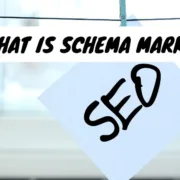Introduction
Have you ever wondered how search engines determine the amount of authority or link juice to pass with dofollow links? It’s like a hidden code that only the search engines know. In this blog post, we will uncover the secrets behind this mysterious process and shed some light on how it all works.
The Authority Game
Search engines are constantly crawling the vast expanse of the internet, looking for new content and evaluating the authority of websites. When it comes to dofollow links, they play a crucial role in determining the authority of a website.
Search engines analyze various factors to assess the authority of a website, such as the number and quality of incoming links, the relevance of the linking page, and the overall reputation of the website. The more reputable and relevant the linking page is, the higher the authority passed through the dofollow link.
Link Juice Distribution
The amount of authority or link juice that search engines pass with dofollow links depends on several factors:
- Domain Authority: Websites with higher domain authority tend to pass more link juice through their dofollow links. This is because search engines perceive these websites as more trustworthy and authoritative.
- Relevance: The relevance of the linking page to the content it is linking to also influences the amount of authority passed. When a reputable website links to content that is relevant to its own niche or topic, search engines consider it as a strong endorsement and pass more link juice.
- Link Placement: The placement of the dofollow link on a webpage matters too. Search engines typically give more importance to links placed within the main content of a page, rather than in sidebars or footers.
It’s important to note that search engines have sophisticated algorithms that continuously evolve. They analyze and interpret these factors in complex ways to determine the authority or link juice to pass with dofollow links.
The Future of Link Authority
As search engines become more intelligent, they are focusing on delivering the most relevant and high-quality search results to users. This means that factors like the overall user experience, content quality, and social signals are gaining importance in determining the authority of a website.
With the rise of artificial intelligence and machine learning, search engines are likely to become even better at understanding the context and relevance of dofollow links. This could result in more personalized and accurate search results for users.
Conclusion
The process by which search engines determine the authority or link juice to pass with dofollow links is complex and ever-evolving. While factors like domain authority, relevance, and link placement play a significant role, the future of link authority lies in the holistic evaluation of a website’s overall quality and user experience. As a business owner, it’s essential to focus on creating valuable content and building relationships with reputable websites to enhance your website’s authority in the eyes of search engines.


















[…] positioning in search results – By providing more context about your pages, search engines have a better understanding of what your pages are about. This can help your pages rank higher and […]
[…] For example, if you answer questions on Quora and link to your site in the answers, those Quora links are nofollow. However, people who visit your site from those Quora links may decide to link to you organically from their own sites or blog posts. Those organic links would be dofollow. […]
[…] engines, indicating that the linked page has relevant and useful content. This trust signal helps search engines determine the importance and quality of the linked […]